On July 11, 1958, five weeks after their wedding date, Mildred and Richard Loving woke to a flashlight shining in their eyes and the sheriff of Caroline County, Virginia, standing above their bed. They were under arrest.
Their crime was interracial marriage. Mildred was part black, part Native-American, Richard was a white man, and their marriage was illegal in Virginia. Sheriff Garnett Brooks had acted on a warrant issued by the commonwealth’s attorney. What followed was a nine-year fight to live as a married couple in the hometown they loved.
“They asked Richard, who was that woman he was sleeping with, and I said, ‘I’m his wife.’” Mildred Loving said, according to archival video of the Loving case. And the sheriff said, ‘Not here you’re not,’” Their D.C. marriage certificate hung on their bedroom wall.
“I said, ‘I’m his wife.’ And the sheriff said, ‘Not here you’re not.'”In 1963, Mildred wrote a letter to Senator Robert Kennedy, “At the time we did not know there was a law in Virginia against mixed marriages,” she told him. “Therefore we were jailed and tried in a little town of Bowling Green. We were to leave the state to make our home…We know we can’t live there, but we would like to go back once and a while [sic.] to visit our families and friends.”
Their case resulted in the landmark 1967 Supreme Court ruling that declared unconstitutional state laws banning mixed-race marriage.
In 1967, only 3 percent of marriages were interracial, according to the Pew Research Center. By 2015, that number had risen to 17 percent.
“What happened, we really didn’t intend for it to happen,” Mildred said in 1992. “What we wanted — we wanted to come home.”
Last year’s Oscar-nominated film, “Loving,” was filmed in part in Caroline County. With their town’s Main Street cast into a 1950s version of itself, the townspeople found a resurged interest in the case.
In 2016, Virginia Governor Terry McAuliffe declared June 12 a holiday: Loving Day. Last week, we traveled to Caroline County to talk to its residents about Richard, Mildred and the story that changed their town and nation.
Gloria Gentry
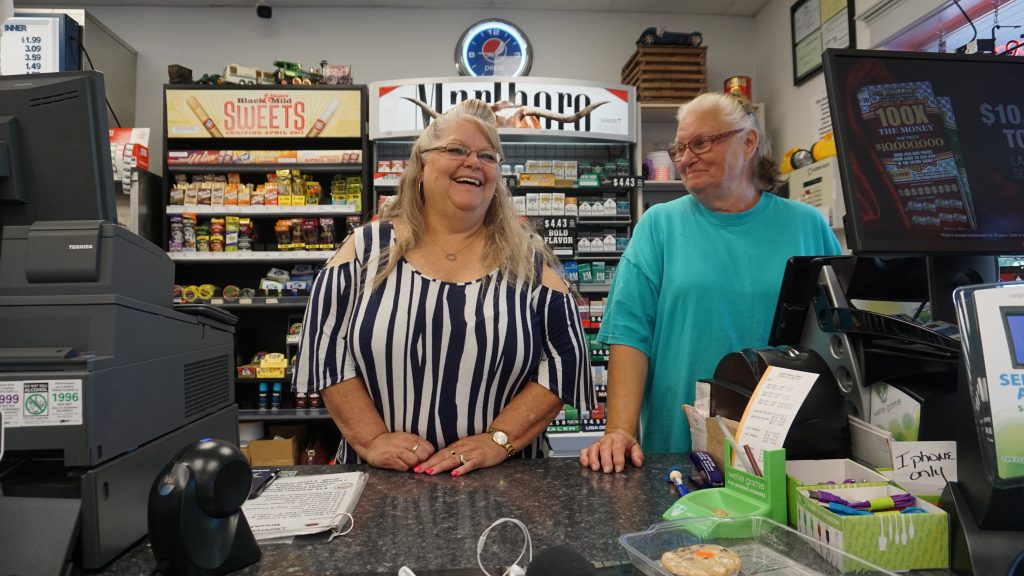
Gloria Gentry, 64, is a cook, and Dorothy Courtney, 54, is assistant manager at Dishman’s Corner Store. Photo by Alison Thoet
“It’s a lesson we all need to learn, to respect people and our personal lives. That they do what they want to do. You can’t judge a person just because they’re not the same color, because God made us all. That’s the way I look at it.” — Gloria Gentry
“All I know is they were run out of Caroline County due to the race of each one. What does it mean? I think it’s crazy. I think everyone should have their own rights to who they fall in love with… I think it was due to the sheriff of the town. Garnett Brooks. He’s the one that I guessed pushed the issue. He’s deceased now, but to be honest, nobody liked him. I didn’t, and I grew up not liking him.” — Dorothy Courtney
Wayne Brooks
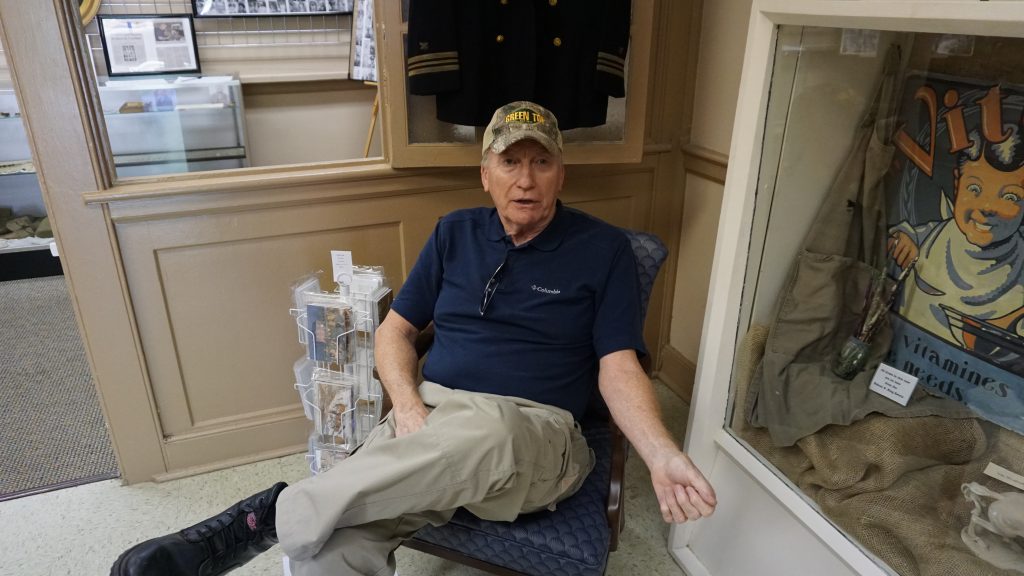
Wayne Brooks, 69, is president of the Caroline County Historical Society. Photo by Alison Thoet
“I knew Garnett well, he passed away about three years ago…. He was my father’s first cousin, so that makes him my second cousin…I think a lot of news media blamed him for [the Lovings’ arrest] and portrayed him afterwards in, I think, a way that he shouldn’t have been shown. He was a tough sheriff.”
Jessie Rollins
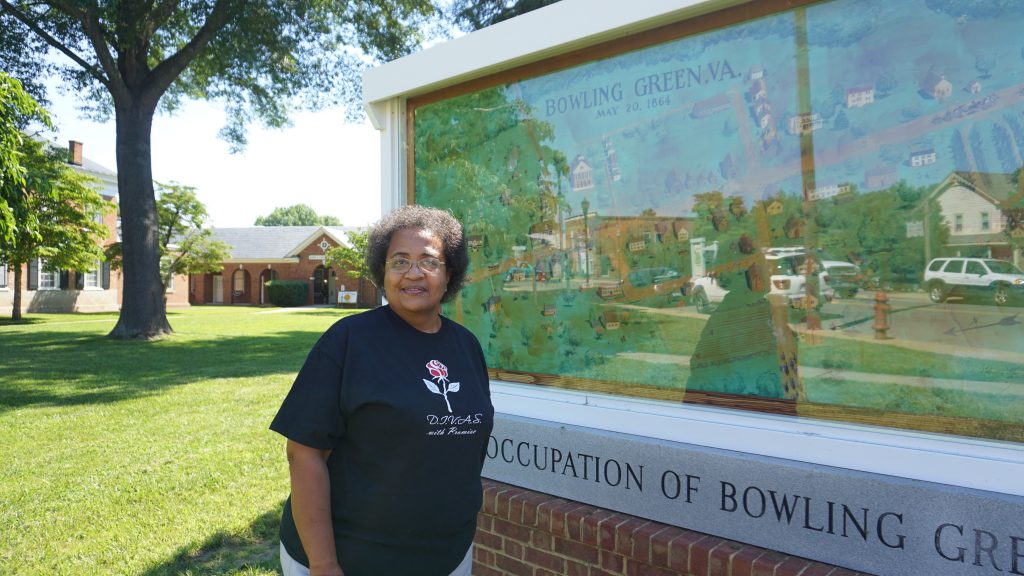
Jessie Rollins, 59, is an involved community member and volunteer with youth organizations 4H and Caroline’s Promise. Photo by Alison Thoet
“A lot of the young kids, they’re very proud of the movie. There’s a lot of kids who go to school with kids who are of the family. So especially for the children, it’s like telling their grandparents’ story in a way that gives honor to how courageous they were — to be as private as they were and to be bold enough to write that letter and see things through, to defend their right to just get married and fall in love…She [Mildred] reminded me of my grandmother. My grandmother had a meek, quiet spirit, like her, but had a very powerful impact.”
Jessica Beale
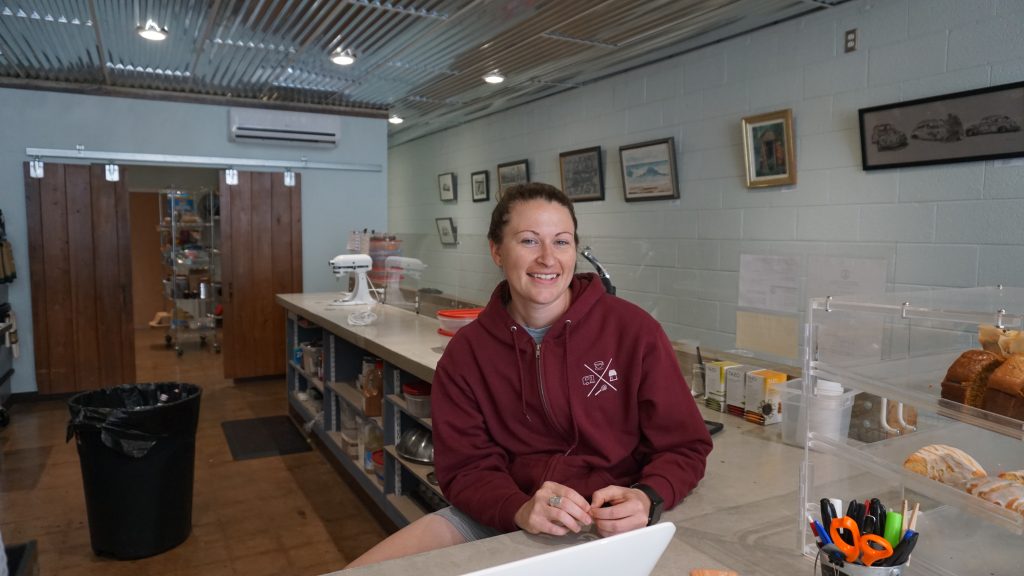
Jessica Beale, 27, in her coffee shop, The Mix House, one of the newest businesses in downtown. Photo by Alison Thoet
“They closed the street down for a couple of days. It was just exciting; you could walk around the town at some points and see all the antique cars they brought in. For a little town it was big stuff.”
Carrie Wright
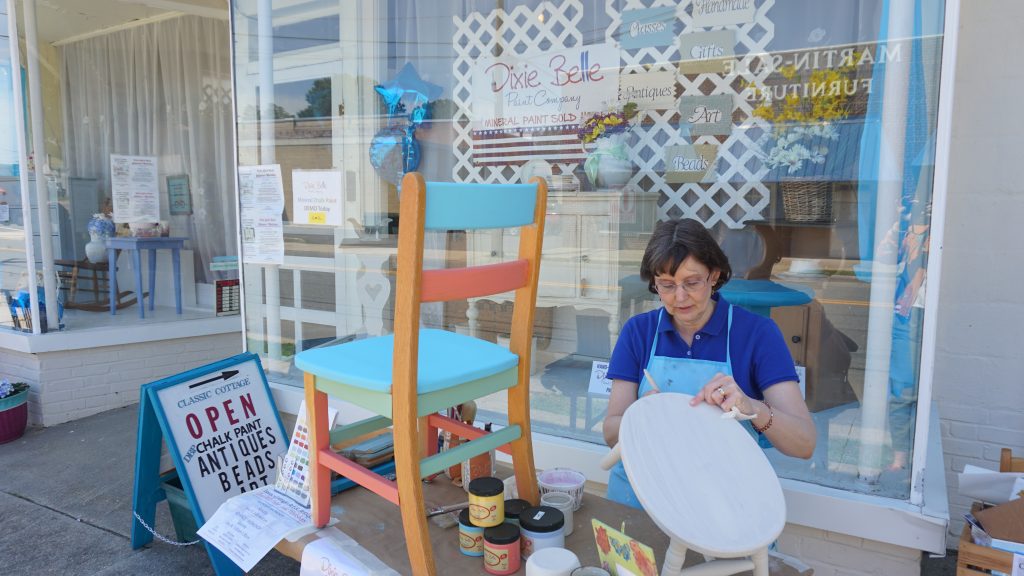
Carrie Wright, 55, outside her antique store in downtown Bowling Green. Photo by Alison Thoet
“A guy from the movie, the prop department, came down looking for props, and I didn’t have what he was looking for. And then one day he came down and bought one glass. It was a little drinking glass. He said it was going to be on the judge’s bench.”
Wendy Jones
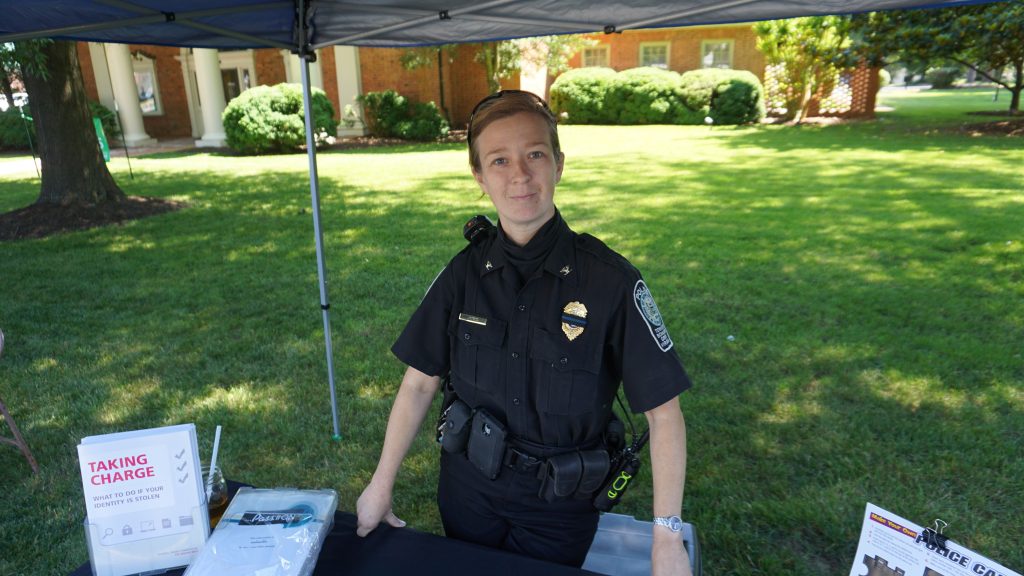
Wendy Jones, 35, is chief of police for Bowling Green Police Department. Photo by Alison Thoet
“One of the last nights we had filming the Loving movie in Bowling Green…some of the family members came in and actually sat down and ate dinner with the actors and the actresses that were in the movie. They pretty much, I guess the phrase goes ‘broke bread together,’ and sat there as a community, a joint endeavor of family, friends, police officers, actors, actresses, directors, all sat there and ate together and shared that experience.”
Jason Satterwhite
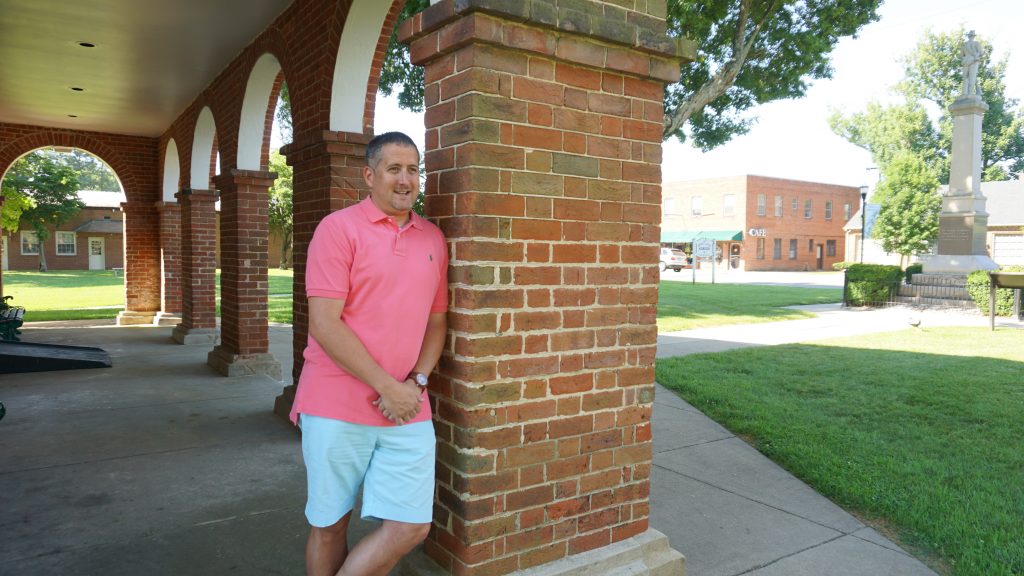
Bowling Green Mayor Jason Satterwhite, 39, outside the Caroline County Courthouse. Photo by Alison Thoet
“They’re just sweet, loving people. And to know that this little small town played a part in the history and the changing of the country…just for two people that wanted a simple life. All they wanted was to love each other and live in the community they loved.”
Jared and Jaden Hageman

Jared Hageman (R), 38, and his son Jaden Hageman (L), 17, at the hardware store where they work in downtown Bowling Green. Photo by Alison Thoet
“Without the case, legally, [my wife and I]wouldn’t be allowed to date or marry. I think it’s great that it happened here. There used to be more looks or people saying things. They would say things behind your back then. Nowadays, it’s kind of chilled out, and you don’t really hear about anyone saying anything anymore… It’s more accepted now with time, a new generation.” — Jared Hageman
“It’s a big deal… If it hadn’t been done, I probably wouldn’t be here right now. It just affects a lot of people’s lives, a lot of interracial couples. I do have hope for more kids in the future like me, I feel like it will get better over time. I do believe it should be talked about more.” — Jaden Hageman
ncG1vNJzZmivp6x7sa7SZ6arn1%2Bjsri%2Fx6isq2eelsGqu81oo5qmlKKus7eMpaavoZ6ceqq6056pq5mTnq6tecyaqauhkZyybq%2FArJxmmpWcrq9506iupw%3D%3D